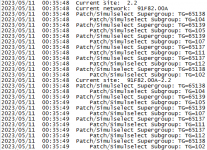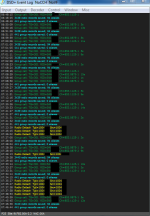OK, I'm NOT an insider, but I know this...the regulations that have previously been imposed by the State on usage of radios on the legacy SLERS system have been so onerous as to require some agencies to purchase a SEPARATE radio just for SLERS usage, RATHER THAN program SLERS into an existing radio.
Picture this: A County Sheriff's Department supervisor's patrol vehicle with SLERS access. Its radio stack includes, but is not limited to, an M7100 set up for the supervisor's county/city and another M7100 set up ONLY for SLERS access. Simply because the State had told the County that this is the way they want it. "No you may not add SLERS access to your existing radio even though it's fully capable. We want CONTROL!!!!" And the SLERS radio is under the control of the State, not the County. (Not sure who pays for it, but ultimately it's the taxpayer anyway.) I've heard that has even applied to portable radios.
As ridiculous as it may seem, that is how I have heard, from a reliable source, that it has been done. Maybe they have not been THAT restrictive in every case, but sometimes, for sure.
As for brevity codes, I will make note that a few years back, DHS specifically made a recommendation that law enforcement should use plain language and NOT use brevity codes.
In fact....click here for more info on that.
However, when the plain language that should be used is not trained into the officers until it's second nature, it makes matters worse.
"10-50, 447 and 53rd street" is very clear and concise. "I'm going to stop this vehicle, or "I'm going to light him up", or some other non-standard phrase can lead to confusion.
The best approach is to standardize the brevity codes for the whole area and train everybody in their usage. I'd think it'd be best if they were adopted statewide, or even nationwide. The same everywhere you go.



